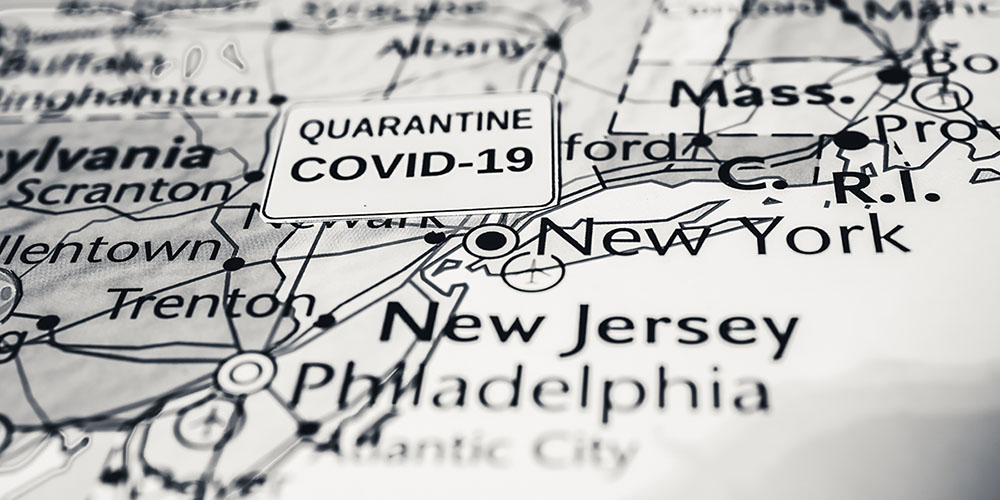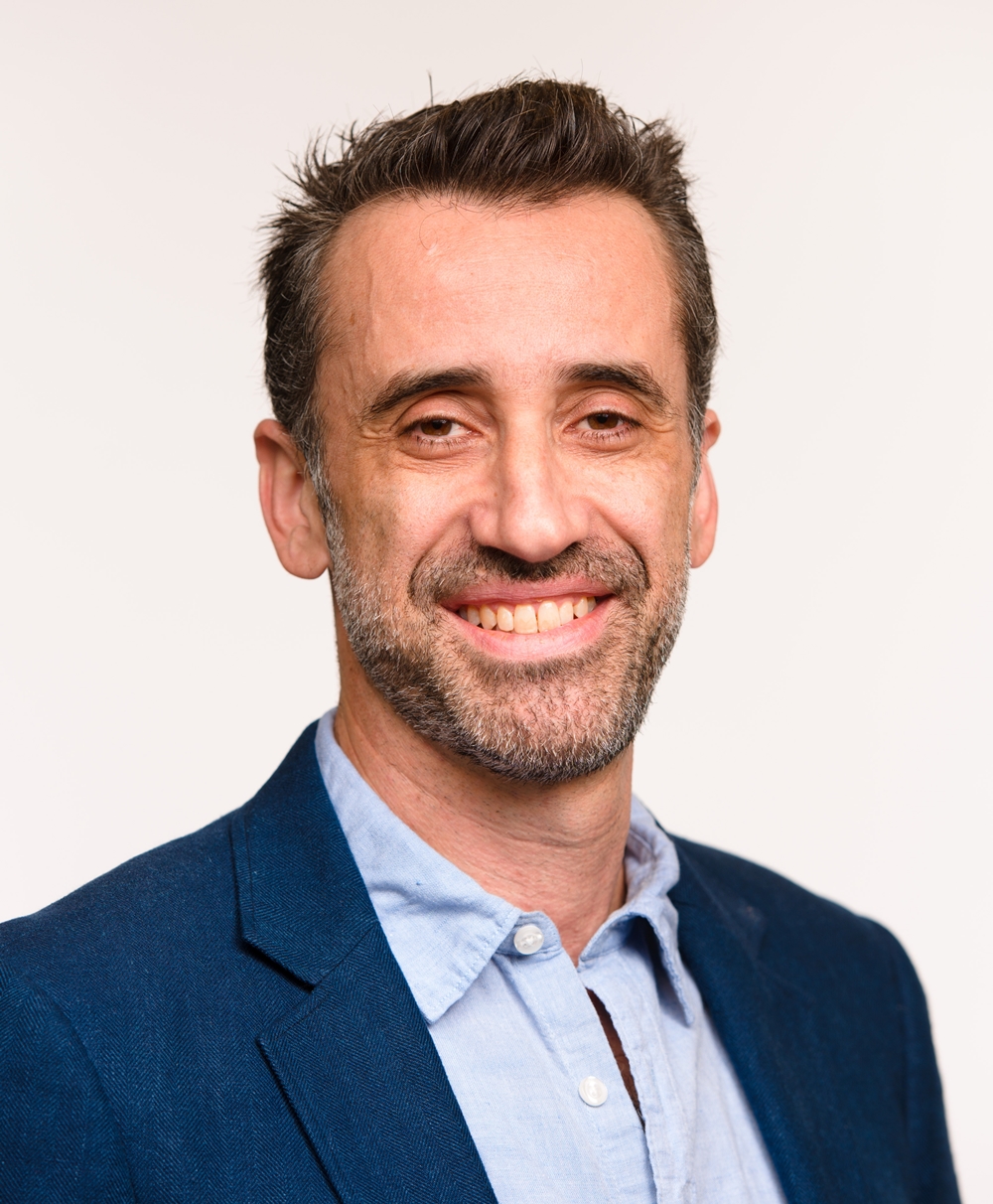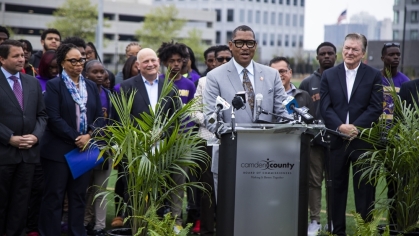Storytelling Project Shares Impact of COVID-19 Pandemic on New Jersey Communities
New Jersey communities will soon get a clearer picture of the impact of the COVID-19 pandemic – through the personal accounts of residents, essential workers, and public servants – thanks to a new storytelling project led by the New Jersey YMCA State Alliance and the New Jersey Department of Health and informed by the Senator Walter Rand Institute for Public Affairs at Rutgers University–Camden.

The Community Conversations: New Jersey’s COVID-19 Storytelling Project aims to create a comprehensive, statewide understanding of COVID-19’s effect.
The Community Conversations: New Jersey’s COVID-19 Storytelling Project aims to create a comprehensive, statewide understanding of COVID-19’s effect via a wide variety of media, including participatory observation, journals, one-on-one interviews, focus groups, artwork, and document analysis. The project is sponsored by the Russell Berrie Foundation, the Robert Wood Johnson Foundation, and the New Jersey Department of Health, with additional support from New Jersey Health Initiatives.
“The impact of the COVID-19 pandemic on peoples' lives will be felt for a very long time,” says Darren Spielman, executive director of the Rand Institute at Rutgers–Camden, which is tasked with gathering project data and reporting the findings. “Yet, these experiences have deep insight into how we move forward as a community, a region, and a state. We are proud to partner in this important research and play a role in building knowledge for the policy and practice needed to respond to the challenges that our residents are facing.”
Kristin Curtis, senior project coordinator at the Rand Institute and the lead researcher on the project, explains that one of the core tenets of the initiative – which began in November and continues through April – is to “meet communities where they are.” She led a training with members of the New Jersey YMCA State Alliance in November on how to conduct qualitative research in a uniform way with members of the various communities. She advised organizers of the questions that are available and the appropriate follow-up questions based on participants’ responses.
The New Jersey YMCA State Alliance, in turn, has trained colleagues, graduate students and volunteers conducting outreach and created a series of online materials – in both English and Spanish – for community members to review and discuss. The New Jersey Department of Health and the YMCA are utilizing their extensive networks of community partners to reach target populations, including working with hospital organizations to set up focus groups with health care professionals.

The YMCA has been tracking everything in real time in order to get a statewide portrait of the impact of COVID-19 in the various counties.
“The YMCA has been tracking everything in real time to ensure that they are getting what they said they would: a statewide portrait of the impact of COVID-19 in the various counties,” says Curtis.
The Rutgers–Camden researcher further notes that the COVID-19 storytelling project focuses on stories from community members who are traditionally overlooked or underserved. Project organizers have been “thoughtful in figuring out where and how to reach participants,” she says, “such as visiting food distribution sites and other locations offering support services.”
Moreover, says Curtis, the Community Conversations project aims to be respectful of participants’ comfort levels. It thus accepts submissions in a wide variety of media, including poetry, artwork, and music.
“Participants don’t just have to sit and talk to someone,” she says. “We are mindful that there are those of us who are more analytical in our expressions, while others are more creative. We all express our feelings differently.”
Curtis says that the YMCA has already collected a vast amount of data, and she and four Rutgers–Camden graduate students have begun the considerable task of reviewing and taking notes on every submission. Even art submissions are coded using advanced software technology and analytical techniques.
The researchers are capturing “history as it is happening,” she says, and want to ensure that they remain as objective as possible in their analysis. She suspects that they will hear about challenges that have been voiced nationwide, such as food insecurity and isolation, but do not want to limit their scope in any way.

Darren Spielman notes that the research will help build knowledge for the policy and practice needed to respond to future challenges.
That means sharing the positive side of the COVID-19 pandemic, as well.
“It is also our hope that, in addition to hearing about the challenges, we hear those stories of hope, resilience, helping out a neighbor, and the connections that were made,” she says. “We really want to tell the full story.”
The Rand Institute will share their preliminary findings with the New Jersey YMCA State Alliance in mid-April and a final report in November.
“We ultimately hope to use the voices of those living in this pandemic to shine a light on the potential policy changes or additional measures that can be taken to address the challenges expressed,” says Curtis.
More information about the Storytelling Project, including how to participate, is available at njymca.org/communityconversations.
The Senator Walter Rand Institute for Public Affairs is an applied research and public service center at Rutgers University–Camden that addresses issues impacting residents and communities in southern New Jersey. With two decades of experience in evaluation, public policy, and organizational development, the Rand Institute has helped organizations in the public, private, and nonprofit sectors develop partnerships and achieve optimal effectiveness. The institute contributes knowledge for sound policy and practice in South Jersey through research, community engagement, and coalition building.
The New Jersey YMCA State Alliance is comprised of 32 member associations. Through statewide initiatives, advocacy and collaborations, the alliance fosters a greater ability for YMCAs across the state to impact families, improve community health, and engage partners. Its collective voice strengthens local communities while promoting youth development, healthy living and social responsibility.


